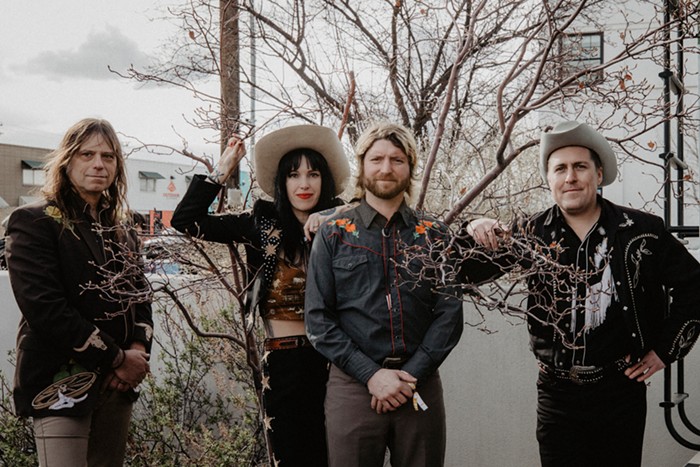It was exciting at first. When the Earth Crisis-led virus of straight-edge veganism infected my hometown of Chicago in the mid-'90s, I saw the old guard wilt. Three-hundred-pound security guards disappeared from crowds they were hired to dominate, whisked away into the all-ages night by mobs of featherweight children in leather-less shoes. Stage diving and moshing reappeared, invisible since the dawn of the alt-rock lawsuit. Vegetarianism became widespread. Less beer was consumed. Guitarists adopted the crush-all drop-D tuning. Breakdowns everywhere. A new ethic for hardcore.
Metalcore, as this dogma would later be called, spread fast and thoughtlessly, like a skin cancer loose on the body of punk. Victory Records opened a storefront in an industrial neighborhood starved for hardcore—and sold only Victory junk. Straightedge made punk sinful. No drugs, no alcohol, no sex without a ring. I watched dissenting peers literally turn their backs on the most amazing bands. Los Crudos, Charles Bronson, My Lai: all guilty of being heavy. Emo was reborn as an alternative.
Punk and metal had collided a decade previous, to different ends. In the '80s, hardcore was yearning for freedom from totalitarianism; some punk discontents, like Seattle "splatter rock" band the Accüsed, began looking to off-the-rails thrash-metal bands like Kreator for sickly kicks and explosive musicianship. The best original "crossover" bands injected metal elements into hardcore. Not the other way around, explains Tommy Niemeyer, founding guitarist of the Accüsed.
"If you start out as a punk band and you naturally happen to blend in elements of some metal, and it sits there and simmers on the back burner on a low boil for a couple years, whatever you put out after that is probably going to be a real good, pure mixture of the best crack cocaine you could cook up," he says. "But if you start out as a metal band and you add elements of punk rock, and you let it simmer, it's gonna probably taste like really bad green tea that's been sitting in the toilet for the last four weeks."
Niemeyer formed the "little three-chord, one-minute-song punk band" in the Seattle area in 1981, under the influence of splatter films and skater politics. He soon created a female mascot with longtime vocalist Blaine Cook (ex-the Fartz). Her name: Martha Splatterhead. She is a zombie with enormous breasts, big neon hair, and sharp blades who hunts child molesters and rapists. If you're not trying to "do some fucking good in this world," cautions Niemeyer, "then you're a worthless piece of shit, and Martha's comin' to getcha."
Throughout most of the '90s the Accüsed were on hiatus because of label troubles and a revolving lineup amid the area's grunge explosion. Niemeyer went full time with his own grunge band, Gruntruck, but when they ran their course early this decade, he came back to old Martha, begging her for mercy.
The Curse of Martha Splatterhead, their first album in over six years, arrives at a time when such punk groups as Municipal Waste, Inepsy, and Portland's Ripper are all crossing the guitarist's advised path to metal. Standouts "Stomped to Death" and "Bodies Are Rising" evoke the blackened nuclear thrash of Portland's Toxic Holocaust, bringing a touch of modern severity to the timeless splatter.
Says the humble Niemeyer, "It's a beast that flies its own."



















